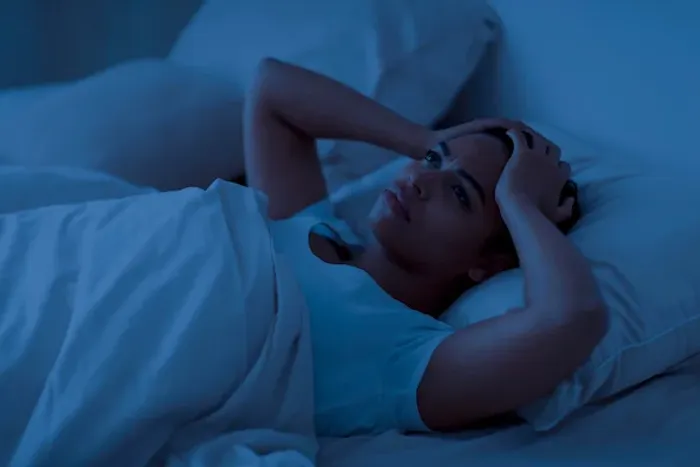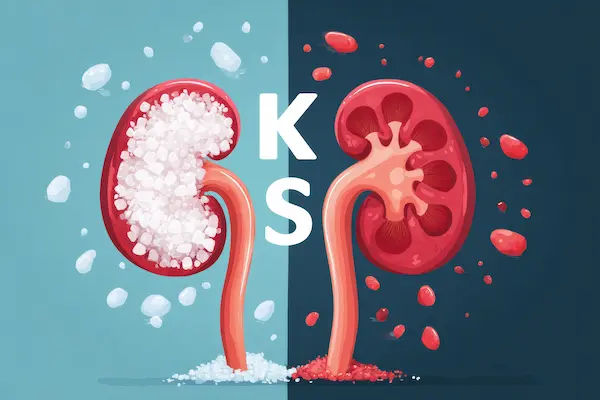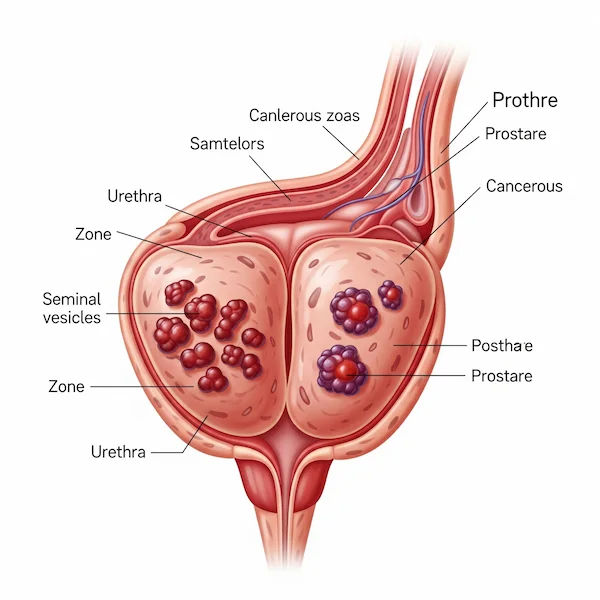Sleep Deprivation: Causes, Effects, and How to Break the Cycle
Explore what causes sleep deprivation, its physical and mental effects, and practical steps to reclaim deep, restorative sleep starting tonight.


Introduction
Do you ever feel like you're running on empty, fueled by caffeine and willpower alone? You're not alone. In our fast-paced, always-on world, sleep deprivation has become a silent epidemic, affecting millions. But it's more than just feeling tired. This condition represents a significant deficit between the sleep you need and the sleep you actually get, and its consequences ripple through every aspect of your life. This article goes beyond a simple list of causes and effects. We will explore the intricate chain reaction of sleep deprivation—how a stressful day can lead to a restless night, which then impairs your judgment the next day, leading to choices that make it even harder to sleep the following night. Understanding this domino effect is the first step toward breaking free. We'll equip you with a clear understanding of the triggers, the profound impacts on your mind and body, and, most importantly, actionable strategies to reclaim restorative sleep and improve your overall well-being.
What Exactly is Sleep Deprivation?
Sleep deprivation is a condition characterised by not getting enough total sleep. While the exact amount needed varies by individual, most adults require 7-9 hours per night for optimal functioning. It's crucial to distinguish between short-term and long-term sleep loss, as their impacts differ significantly.
Acute vs. Chronic: Understanding the Difference
Here are the differences between acute and chronic sleep deprivation:
Acute Sleep Deprivation refers to a short-term period, often just a night or two, of insufficient sleep. Think of pulling an all-nighter for an exam or a work deadline. The effects are immediate and noticeable—grogginess, irritability, and difficulty concentrating—but they typically resolve after a couple of good nights of sleep.
Chronic Sleep Deprivation, on the other hand, is a more serious concern. This is when you consistently fail to get enough sleep, perhaps getting only 5-6 hours per night over weeks, months, or even years. This is where the most severe health effects of poor sleep accumulate, significantly increasing the risk for long-term physical and mental health problems. The body never gets a chance to fully recover, leading to a persistent state of deficit.
Consult a Somnologist for the best advice
The Primary Triggers: What's Keeping You Awake?
The path to sleep deprivation often starts with identifiable triggers. These can be broadly categorised into lifestyle choices and underlying health issues.
Lifestyle and Environmental Factors
Our modern habits are often at odds with our natural sleep-wake cycle, or circadian rhythm.
The Blue Light Dilemma: Screens and Sleep
The use of smartphones, tablets, and computers before bed is a major culprit. These devices emit blue light, which suppresses the production of melatonin, the hormone that signals to your body that it's time to sleep. Scrolling through social media or answering work emails keeps your brain alert and engaged, making it much harder to wind down and fall asleep naturally.
Caffeine and Alcohol: The Deceptive Sleep Disruptors
That afternoon coffee can have a longer tail than you think. Caffeine has a half-life of about 5-6 hours, meaning if you have a coffee at 4 PM, half the caffeine is still in your system at 9 PM, interfering with your ability to fall asleep. Alcohol, while initially sedative, is a deceptive sleep disruptor. It disrupts the architecture of your sleep later in the night, particularly reducing crucial REM sleep, leading to a non-restorative night even if you pass out quickly.
Underlying Health Conditions
Sometimes, the root cause is medical.
The Vicious Cycle of Stress and Anxiety
Worries about work, finances, or relationships can create a hyper-aroused state that is incompatible with sleep. This is a prime example of a cause becoming an effect and then a cause again: stress causes poor sleep, which heightens emotional reactivity and anxiety the next day, which in turn causes more stress and further sleep difficulties.
Sleep Disorders: When It's More Than Just a Bad Night
Conditions like sleep apnoea (characterised by pauses in breathing during sleep), restless legs syndrome, and chronic insomnia are medical conditions that directly prevent restorative sleep. If you suspect you have a sleep disorder, it's essential to seek professional diagnosis and treatment.
The Domino Effect: How Sleep Deprivation Impacts Your Mind and Body
The consequences of not sleeping enough are far-reaching, affecting everything from your ability to think clearly to your physical health.
The Cognitive Toll: Brain Fog, Memory Lapses, and Poor Judgment
During sleep, your brain consolidates memories and clears out metabolic waste. Without it, cognitive function plummets. You may experience "brain fog," difficulty focusing, impaired memory, and slower reaction times. Studies have shown that sleep-deprived individuals perform similarly to those who are legally intoxicated on cognitive tests. This can affect performance at work or school and even pose safety risks, especially when driving.
The Emotional Rollercoaster: Irritability, Mood Swings, and Mental Health
Sleep is crucial for emotional regulation. The amygdala, the brain's emotional center, becomes overactive when you're tired, leading to increased irritability, mood swings, and a reduced ability to cope with stress. Chronic sleep deprivation is strongly linked to the development of mental health conditions like depression and anxiety disorders.
The Physical Consequences: From Weight Gain to Weakened Immunity
The body does its essential repair work during sleep. Sleep deprivation disrupts the balance of hormones that control appetite (ghrelin and leptin), often leading to increased cravings for high-calorie foods and potential weight gain. It also raises cortisol levels (the stress hormone) and impairs the immune system, making you more susceptible to infections like the common cold. Long-term, it increases the risk of serious health problems, including hypertension, heart disease, and type 2 diabetes.
The Self-Perpetuating Cycle: When Effects Become Causes
This is the critical insight often missed: the effects of sleep deprivation can create new causes, trapping you in a cycle.
How Daytime Fatigue Leads to Poor Sleep Choices
After a night of poor sleep, you're exhausted the next day. To cope, you might drink more caffeine, skip your evening workout because you're too tired, or take a long, late nap. All these coping mechanisms, while providing short-term relief, can make it harder to fall asleep at your regular bedtime, setting the stage for another bad night.
Anxiety About Sleep (Orthosomnia) Fuels More Sleeplessness
After struggling with sleep for a while, it's common to develop anxiety about the act of sleeping itself. You might go to bed worrying, "Will I sleep tonight?" This performance anxiety, sometimes called orthosomnia, creates a state of stress that is the exact opposite of the relaxation needed for sleep. The fear of insomnia becomes a direct cause of insomnia.
Reclaiming Your Sleep: Practical Strategies for Better Rest
Breaking the cycle requires a consistent, multi-faceted approach focused on good sleep hygiene practices.
Mastering Sleep Hygiene: Building a Bedtime Ritual
To improve your sleep quality, try incorporating these simple but effective habits into your nightly routine:
Consistency is Key: Go to bed and wake up at the same time every day, even on weekends. This stabilises your circadian rhythm.
Create a Wind-Down Routine: Spend the last 30-60 minutes before bed doing calming activities: read a physical book, take a warm bath, practice light stretching, or meditate.
Avoid Screens: Power down all electronic devices at least one hour before bedtime.
Creating the Ideal Sleep Environment
A restful environment can make a big difference in how quickly you fall asleep and how well you stay asleep. Try these tips to optimise your space:
Optimise Your Bedroom: Ensure your room is cool, dark, and quiet. Consider using blackout curtains, a white noise machine, and a comfortable mattress.
Reserve the Bed for Sleep and Intimacy: Avoid working, eating, or watching TV in bed. This strengthens the mental association between your bed and sleep.
When to Seek Professional Help
If you have consistently implemented good sleep habits for several weeks without improvement, or if you suspect an underlying condition like sleep apnoea (symptoms include loud snoring, gasping for air, and daytime sleepiness despite adequate time in bed), it's time to consult a professional. If your condition does not improve after trying these methods, book a physical visit to a doctor with Apollo24|7 for further evaluation. They can help identify any root causes and recommend appropriate treatments, which may include cognitive behavioural therapy for insomnia (CBT-I), which is highly effective.
Conclusion: Prioritising Sleep for a Healthier You
Sleep deprivation is far more than an inconvenience; it's a fundamental drain on your physical health, mental clarity, and emotional resilience. As we've seen, it often operates as a vicious cycle, where its effects—like daytime fatigue and anxiety—fuel its causes. However, this cycle can be broken. By understanding the triggers, respecting the profound impact of sleep on your entire well-being, and committing to consistent sleep hygiene practices, you can reclaim control. View sleep not as a luxury or wasted time, but as a non-negotiable pillar of health, as critical as nutrition and exercise. Start tonight by making one small change, like setting a digital curfew. Your body and mind will thank you for it.
Consult a Somnologist for the best advice
Consult a Somnologist for the best advice

Dr. Rajib Ghose
General Physician/ Internal Medicine Specialist
26 Years • MBBS
Kolkata
B Ghose Foundation Doctor's Chamber, Kolkata
(50+ Patients)

Dr. Shubham Chauhan
General Practitioner
4 Years • MBBS
Lucknow
Apollo 24|7 Clinic - Uttar Pradesh, Lucknow

Dr. Dhankecha Mayank
General Practitioner
6 Years • MBBS
Hyderabad
Apollo 24|7 Clinic - Telangana, Hyderabad

Dr. Rajib Ghose
General Physician/ Internal Medicine Specialist
25 Years • MBBS
East Midnapore
VIVEKANANDA SEBA SADAN, East Midnapore

Dr. Abhishek Ranjan
General Practitioner
4 Years • MBBS
Kolkata
VDC Clinic, Kolkata
More articles from General Medical Consultation
Frequently Asked Questions
1. What are the first signs of sleep deprivation?
The earliest signs often include persistent daytime sleepiness, yawning, irritability, fatigue, difficulty concentrating, and increased appetite, especially for sugary or fatty foods.
2. Can you 'catch up' on lost sleep?
Yes, to some extent. 'Sleep debt' can be repaid by sleeping longer on subsequent nights, such as on weekends. However, consistent catch-up is not a healthy long-term strategy and doesn't reverse all the effects of chronic deprivation. It's better to maintain a consistent schedule.
3. How does sleep deprivation lead to weight gain?
It disrupts the hormones that regulate appetite. Ghrelin (the 'hunger hormone') increases, while leptin (the 'satiety hormone') decreases. This hormonal shift leads to increased hunger and cravings for high-calorie foods.
4. What is the difference between insomnia and sleep deprivation?
Sleep deprivation is broadly defined as not getting enough sleep, often due to voluntary or external factors (e.g., a noisy environment, work schedule). Insomnia is a specific sleep disorder where you have adequate opportunity to sleep but still have persistent difficulty falling asleep, staying asleep, or experiencing non-restorative sleep.
5. When should I be seriously concerned about my sleep problems?
You should consult a doctor if your sleep problems persist for more than three weeks, significantly impact your daytime functioning, or if you experience symptoms like loud snoring, gasping for air during sleep, or uncontrollable leg movements. If symptoms persist beyond two weeks, consult a doctor online with Apollo24|7 for further evaluation.




